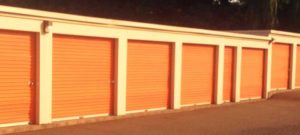You’ve done the research and concluded that a wireless surveillance system is the right fit for your business. It’s easy to install, easy to use, and most importantly, it will keep your business protected from crime and vandalism. Now it’s time to decide which surveillance system to choose.
You have a lot of options, but not all of them are necessarily good ones for your business. So before you decide, here are some questions to ask when looking for a wireless surveillance system.
Are The Security Cameras IP Or Analog?
Surveillance systems come in both options, however, IP cameras generally offer better features than analog. They have wider fields of view, higher quality images, and advanced zooming capability. You can manage your IP cameras remotely and they require little maintenance. Analog cameras are more complicated and require more frequent maintenance. Plus, they lack the high-quality picture that you can get from an IP camera.
What’s The Megapixel Count Of The Security Cameras?
Megapixel count matters in security cameras. If there’s a theft or crime at your business, and the intruders getaway, you want to be able to identify them. And a higher megapixel count means a better picture. In general, higher resolution video surveillance systems are more expensive and they take up more space. So, when you choose a system, keep the megapixel count in mind, but your budget and size of the business will also play a role.
Does The Wireless Surveillance System Include Night Vision Features?
Since most theft and vandalism happens in the dark, you’ll want to know details about the security surveillance system’s night vision features. Consider your lighting too. Does the area around your business have good lighting, or can you add lighting to it? If not, then a higher resolution system with night vision features may important to the security of your facility.
What Kinds Of On-Site Deterrents Are Included?
A highly effective wireless security surveillance system should include deterrents that startle the would-be criminals and even scare them away. Deterrents like alarms, strobe lights, and recorded messages can prevent around 93% of incidents. When someone approaches the property and is a potential threat, these deterrents are triggered immediately in some wireless surveillance systems using advanced recognition software.
Will The Cameras Withstand Different Kinds Of Weather?
For systems that use outdoor cameras, you’ll want to make sure that the cameras can handle the weather in your area. Does it get really hot in the summer, or do you experience freezing temperatures in the winter? Cameras will have a two-digit IP (Ingress Protection) rating that will indicate how well the camera will hold up under different conditions. Make sure that the system you purchase can withstand the elements you experience including rain, humidity, and extreme temperatures.
How Do Its Technical Features Compare To Other Wireless Systems?
Depending on your needs and budget, there are other wireless surveillance system features that could be useful. These include video analytics, cloud computing access, compatibility with video recorders, and storage capacity. The technical features you choose should depend on factors such as the value of your inventory or the size of your office space.
Choosing The Right Wireless Surveillance System
Yes, even after you’ve narrowed the field from wired to wireless, there are still many choices to make. However, when you’re clear on your budget and the kind of surveillance your business needs, it’s much easier to choose a wireless system.
Once you’ve found the right system for your business, feel free to contact us with any questions or for a free quote.






